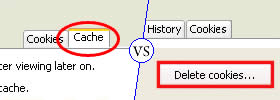Difference between Formal and Informal
Key Difference: Formal is often associated with the conventional or etiquette. It means to be in accord with the established procedures, forms, conventions or rules. It is also associated with official norms. On the other hand, informal denotes a non formal style. It indicates a causal manner characterized by relaxed and friendly attitude.

Formal and informal are antonyms to each other. Formal defines an official style or manner. On the other hand, informal can be associated with a casual or a friendly manner. Thus, anything that is associated with the 'formal' attribute is regarded to be in accordance to certain rules and regulations or based on a standard format.
Informal is just the opposite of formal. Something that is informal need not follow rules or regulations. It may also not be based on any f the conventional procedures. Informal approach is a casual type of approach. It is often associated with a friendly manner.
For example, a formal letter is a type of letter that is written according to a standard business format. This letter is generally written for correspondence between organizations and customers, etc. On the other hand, an informal letter is written in a friendly manner to friends, relatives, etc. and there is no fixed format to refer to while writing such a letter. Both the terms are generally used as adjectives.
Comparison between Formal and Informal:
|
|
Formal |
Informal |
|
Definition (Dictionary.com) |
|
|
|
Examples in sentences |
|
|
|
Dress |
A formal dress refers to the dress that is regarded to be suitable for events like wedding, garden party, etc. For men, a formal dress is generally a business suit. |
An informal dress refers to a dress that is found to be appropriate to be worn in everyday affairs. It is a casual clothing style. |
|
Language |
A formal language is language that has no grammar or spelling mistakes. |
An informal language may have grammar or spelling mistakes. It often uses slang words. |
|
Organization |
A formal organization is marked by a set of rules and regulations that must be followed by the employees. |
An informal organization is a network consisting of personal and social relationships, in which friendships are formed within the organization. |
|
Meetings |
Formal meetings are preplanned with a fixed agenda to be discussed. It takes place in an official set-up. |
Informal meetings are generally last minute meetings. They have casual discussions. These meetings can take place in restaurants, etc. |
Image Courtesy: blog.ezinearticles.com









Add new comment